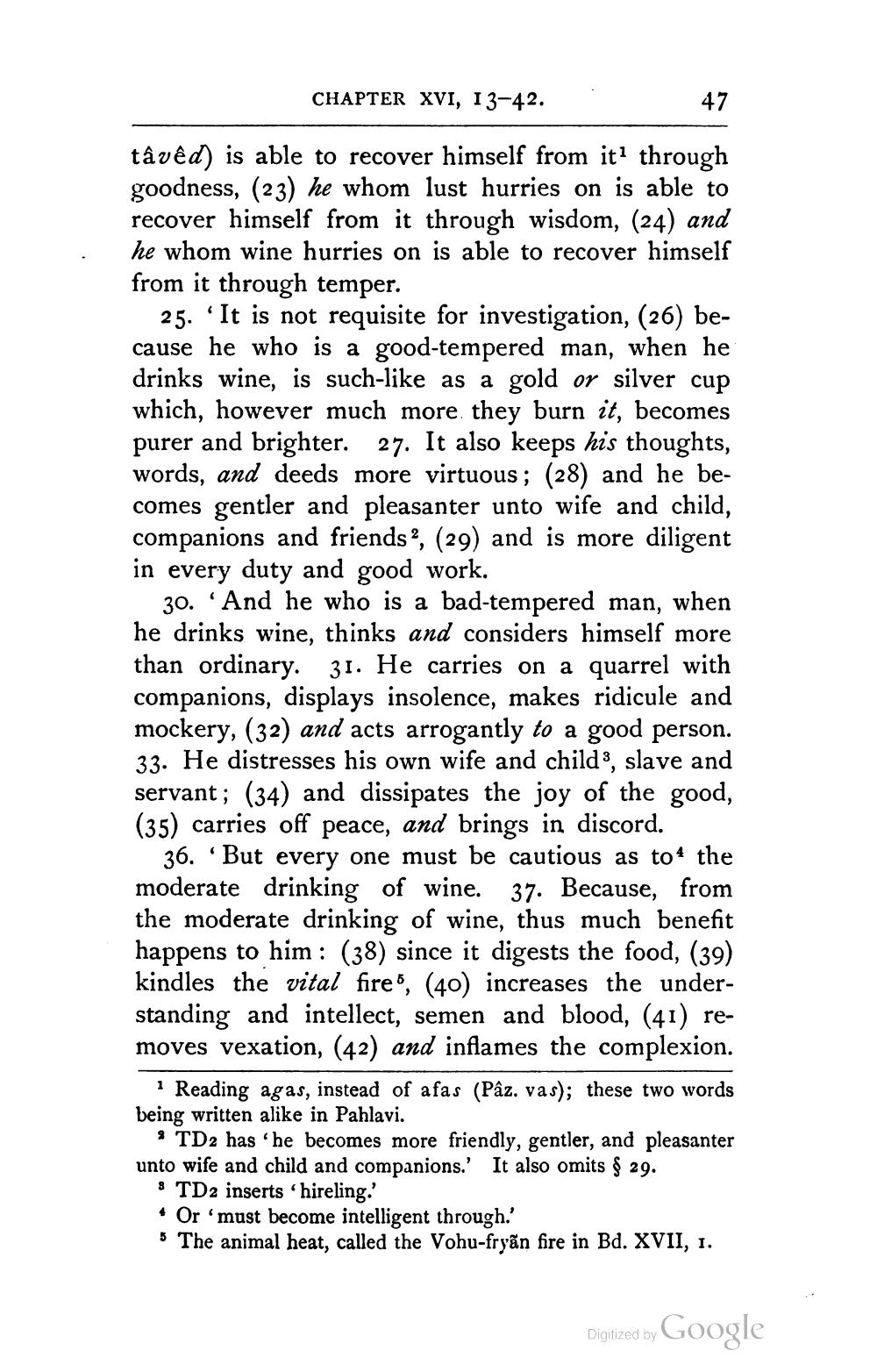________________
CHAPTER XVI, 13-42.
.
47
tâvêd) is able to recover himself from it through goodness, (23) he whom lust hurries on is able to recover himself from it through wisdom, (24) and he whom wine hurries on is able to recover himself from it through temper.
25. 'It is not requisite for investigation, (26) because he who is a good-tempered man, when he drinks wine, is such-like as a gold or silver cup which, however much more they burn it, becomes purer and brighter. 27. It also keeps his thoughts, words, and deeds more virtuous; (28) and he becomes gentler and pleasanter unto wife and child, companions and friends?, (29) and is more diligent in every duty and good work.
30. 'And he who is a bad-tempered man, when he drinks wine, thinks and considers himself more than ordinary. 31. He carries on a quarrel with companions, displays insolence, makes ridicule and mockery, (32) and acts arrogantly to a good person. 33. He distresses his own wife and childs, slave and servant; (34) and dissipates the joy of the good, (35) carries off peace, and brings in discord.
36. 'But every one must be cautious as to 4 the moderate drinking of wine. 37. Because, from the moderate drinking of wine, thus much benefit happens to him : (38) since it digests the food, (39) kindles the vital fire", (40) increases the understanding and intellect, semen and blood, (41) removes vexation, (42) and inflames the complexion.
* Reading agas, instead of afas (Pâz. vas); these two words being written alike in Pahlavi.
* TD2 has 'he becomes more friendly, gentler, and pleasanter unto wife and child and companions. It also omits § 29.
9 TD2 inserts "hireling.' • Or 'must become intelligent through.' 5 The animal heat, called the Vohu-fryān fire in Bd. XVII, 1.
Digitized by Google




